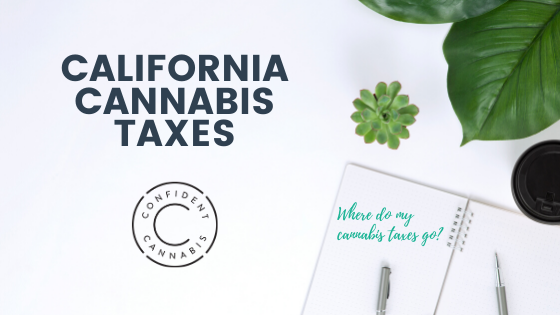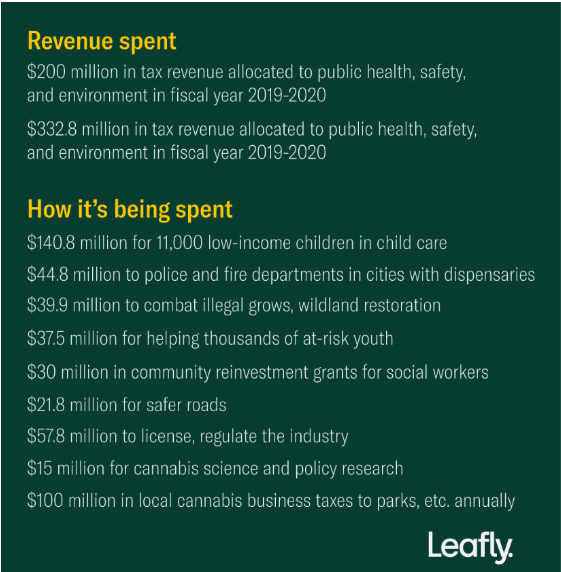The right to cultivate and sell cannabis in the State of California is a given, but the bureaucratic ease in doing so is not. Times are hard for business owners right now, and those struggles trickle down from top to bottom. Federal legality, competing against the black market, and heavy taxation all weigh heavy on the weary shoulders of this industry—and this doesn’t seem to be letting up any time soon.
The California Department of Tax and Fee Administration (CDFTA) determines the cannabis tax markup rate every six months. As posted to their website, “an analysis of statewide market data was used to determine the average markup rate between the wholesale cost and the retail selling price of cannabis products. Based on this analysis, effective January 1, 2020, the newest markup rate will be at 80%.” In January, a new tax increase went into effect that will further intensify price point discrepancies between the compliant and non-compliant markets with the excise tax growing from 60% to 80% and cultivation taxes up to 4.6%. This increases the tax on cannabis flower per dry weight per ounce from $9.25 to $9.65. The leaves per ounce (dry weight) will increase from $2.75 to $2.97, and fresh cannabis per ounce will increase from $1.29 to $1.35.
Yet another blow to an industry currently facing an economic downturn in a depressed market, these new taxes forced some businesses to shutter or move out of California due to the high operating costs. While competing against illicit operators is part of the problem, even those business owners say they cannot afford to pay state-required entrance fees to become compliant, let alone the additional taxes.
Understanding the Cannabis Tax System
Currently, seven states tax legal marijuana, most of which place the tax on the consumer purchase (like a retail sales tax) while other states impose the transaction between cultivators and distributors/retailers (similar to alcohol tax). California taxes cannabis at two points during production: By weight after harvest, and then as an excise tax at the retail level.
According to the Tax Policy Center, and their research of state government websites, some California cities charge consumers an effective tax rate of more than 40% on cannabis that’s already more expensive than what they can get on the black market. This includes a state excise tax of 15% added to regular sales taxes and often-high local marijuana taxes—in addition to the tax cannabis growers pay at harvest time. California levies a tax on the wholesale transaction between cultivators and distributors with the expectation that some of the charges will pass through to the consumer via higher purchase prices.
Looking at the Brightside of Tax Revenue
The CDTFA reports that the state has raised $845.3 million in cannabis tax revenue since January 2018, which includes more than $411 million in excise tax revenue, nearly $99 million in cultivation tax revenue, and more than $335 million in sales tax revenue. While these taxes are quite difficult on business owners, the CDTFA describes its mission “to make life better for Californians by fairly and efficiently collecting the revenue that supports our essential public services,” which is present in the ways the state puts tax revenue to use for new parks, healthier kids, clean forests, removing drugged drivers off the road, and clearing prejudicial criminal records. Leafly recently completed a comprehensive report tracking the tax data across dozens of state and local agencies. They found that the bulk of the funds flow to:
- Youth anti-drug programs (60%)
- The environment (20%)
- Public safety grants (20%)
Read the comprehensive research report from Leafly here.
Possible Other Ways to Tax
The CDTFA analyst’s office proposes a novel change to the current tax structure: Drop the cultivation tax entirely and tax cannabis by its THC potency instead. This could make California the first to tax marijuana on THC content, although Canada does this for products like concentrates and edibles. More on this topic in future articles as the idea progresses.
We want to hear from you about how your business is handling excessive cannabis taxation.
Reach out to our team at california@confidentcannabis.com
Disclaimer:
Confident Cannabis is not a law firm or tax advisor. Confident Cannabis is not paid by any tax authorities or the State of California.Everything discussed here is for informational purposes only.Do not rely solely on the content presented here for legal, regulatory or tax purposes.You should seek your own independent legal, regulatory and tax advice.We did our best to get the facts right, but we’re not perfect. We hope you give us credit for trying to help.


